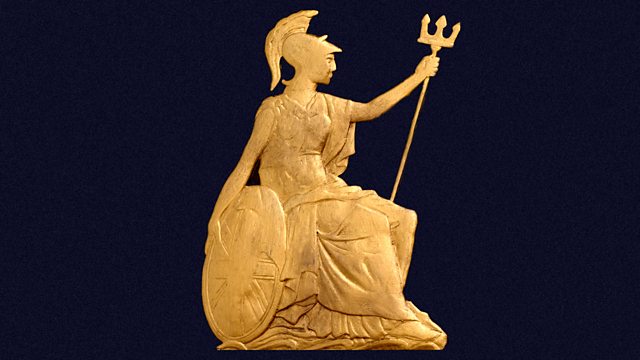Empire of the Seas
MP and historian Kwasi Kwarteng sets out to look for the British Empire in the UK’s monuments, people - and in its contested memories.
MP and historian Kwasi Kwarteng claims the British Empire is all around us today and in this series he sets out to look for it in the UK’s monuments, people - and in its contested memories.
In ‘Empire of the Seas’, he’s in Bristol, where he believes the British Empire really began with the voyage of John Cabot 500 years ago. The explorer’s reputation in the city has gone up and down over the years as Bristol re-assesses its imperial past. Kwasi asks how people feel the presence of empire now, especially in the inner-city’s multi-ethnic communities. In Glasgow, ‘Second city of Empire’, Kwasi explains how it profited handsomely from imperial trade. He also discovers that Glasgow has been slower than other port-cities to question the origins of its imperial wealth. The industries connected with the colonies have long gone. But he does get to visit one workplace which continues the city’s nautical traditions.
Producer Gareth Jones for ������̳ Wales
Last on
Clip
Kwasi Kwarteng on the making of episode one of Living with the Empire

In designing a short series about the British Empire, and its effects on Britain itself, I was drawn to the idea of visiting Britain’s cities.
London, Oxford, Liverpool, Bristol and Glasgow occurred to me as some of the cities in Britain which were most affected by the British Empire.
Glasgow has a unique story. For me, it is very much about industry, in particular ship-building, and people using physical labour to drive economic progress. While Liverpool and Bristol were busy ports, associated most obviously with the slave trade, Glasgow had a slightly different story.
I was disappointed that we could not find any space for a little bit of this story in the series Living with Empire. The first programme, which concerned Bristol and Glasgow, was dominated by the story of slavery and reparations. It emerged, while we were making the programme, that Glasgow University had benefited directly from the legacies of plantation owners, and Professor Sir Geoff Palmer was asked to comment on this.
This breaking story meant that some of the history of Glasgow’s unique contribution to building the British Empire was overlooked. I think this is a hugely important story that needs to be told. Too often, tales of the British Empire revolve around elites, administrators and the upper crust of politics, or they focus directly on oppressed peoples, usually Africans and Asians, who were exploited by the Empire.
The missing piece in all this, of course, are the British workers themselves. They supported the Empire, as soldiers, industrial workers, sailors, engineers or domestic workers. This story of what used to be called ‘the working class’, and its relationship to Empire, rarely gets any airtime whatsoever.
It is striking that, in the recent debates about Brexit, many commentators have suggested that the decision to leave the EU was in part a backlash from the ‘left behind’. It is disappointing that no room was given in the broadcast to genuine voices from the industrial heartland, far removed from London, but without which the British Empire could simply not have functioned.
I was lucky to see for myself the Fairfield Museum, on the site of the old Fairfield shipyard in the Govan area of the city. I was fortunate to speak to Sandra Kane and Janice Mackenzie, whose father had worked at the shipyard. They took pride in the history of their city, the professionalism of the workers in the shipbuilding industry, and the way in which engineering, design and sheer physical effort combined to a produce a first class product.
Glasgow’s recent history has been dominated by heavy industry, notably ship-building. This immediately makes one think of global trade, as well as military prowess.
Today, Glasgow is a dynamic city which still has an enormously proud heritage derived from the days of Empire. In the 19th century it was known as the ‘second city of the Empire’; its financial and ship building capability were known throughout the world.
Since the Second World War industries have been nationalised, and then large job losses have occurred, as technology and innovation have reduced the need for manual labour. The way in which Glasgow’s people have adapted to changing economic circumstances is a significant story in itself.
Glasgow’s history is very much a tale of the industrial working class. Trade unionism, socialism, and industrial struggles of the 20th century are etched on its collective memory. There are so many human stories of courage and sacrifice, of political upheaval and industrial action. This is a crowded picture. It is nothing less than the story of the industrial revolution combined, almost uniquely in Glasgow’s experience, with a sea-faring, outward-looking imperial culture.
Glasgow’s story can be summed up in two words: ‘industry’ and ‘empire’.
Photo credit: Willie Humphrey
Broadcasts
- Mon 8 Oct 2018 20:00������̳ Radio 4
- Wed 10 Oct 2018 11:00������̳ Radio 4


